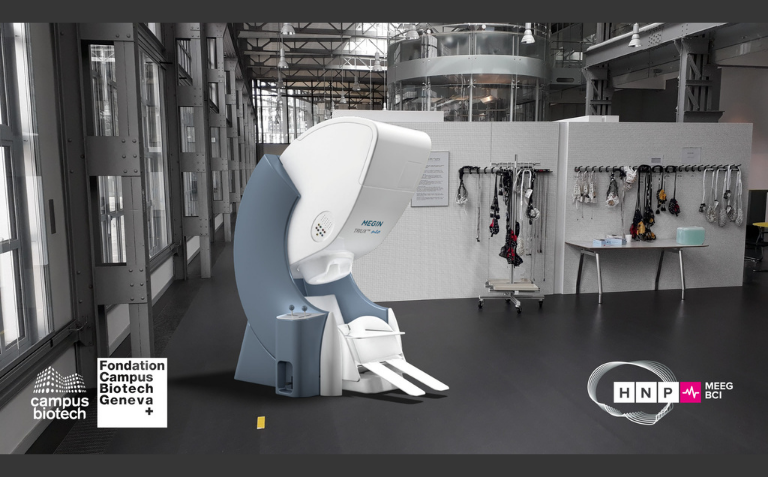
A MEG plateform at Campus Biotech in 2022
Share this article
A new device for brain research at the Campus Biotech
Next summer, the Human Neuroscience Platform (HNP) at Campus Biotech will acquire and install a new Magnetoencephalography (MEG). The new MEGIN Triux neo will integrate the already existing MEEG-BCI MRI facility. Magnetoencephalography (MEG) is a non-invasive imaging technique for investigating human brain activity. Dr Gwenael Birot, manager of the EEG facility, explains: “MEG allows the measurement of ongoing brain activity by detecting and measuring the magnetic fields generated by individual neurons in the brain on a millisecond-by-millisecond basis, and it shows where in the brain the activity is produced.”
Compared to MRI and EEG, what are the MEG advantages?
MEG directly measures brain activity through the magnetic field the neuronal activation produces. Consequently, MEG has a much higher temporal resolution than fMRI, allowing the timing of brain activity to be much more precisely measured. MEG also provides better spatial resolution of source localization (2-3 mm) than EEG (7-10 mm).
Finally MEG can also benefit from practical advantages in terms of speed of installation and comfort for the subject, as they are seated and not and not lying down, which can facilitate access to certain patient or child populations. It does not make any operational noise and movement are allowed, unlike MRI.
What can the MEG do?
How many MEG are there?